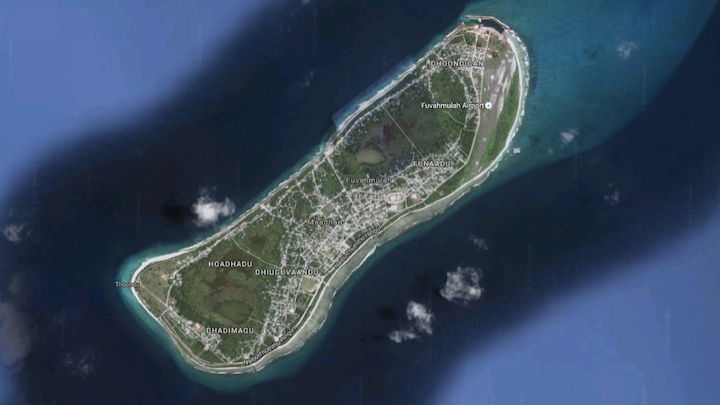Fuvahmulah declared Maldives’ third city
As Fuvahmulah is uniquely both an island and its own atoll, it currently has an atoll council as well as island councils for each of its eight administrative wards, with a total of 30 elected councillors. However, the island will now have a three-member city council.

25 Sep 2016, 09:00
President Abdulla Yameen has accorded city status to the southern island of Fuvahmulah ahead of the upcoming local council elections.
An executive decree was issued on Thursday declaring that the island meets the criteria for a city in the decentralisation law, which was amended last year to lower the minimum population threshold from 25,000 to 10,000.
As Fuvahmulah is uniquely both an island and its own atoll, it currently has an atoll council and island councils for each of its eight administrative wards, with a total of 30 elected councillors.
However, the island will now have a three-member city council, one each for its three parliamentary constituencies.
Become a member
Get full access to our archive and personalise your experience.
Already a member?
Discussion
No comments yet. Be the first to share your thoughts!
No comments yet. Be the first to join the conversation!
Join the Conversation
Sign in to share your thoughts under an alias and take part in the discussion. Independent journalism thrives on open, respectful debate — your voice matters.




